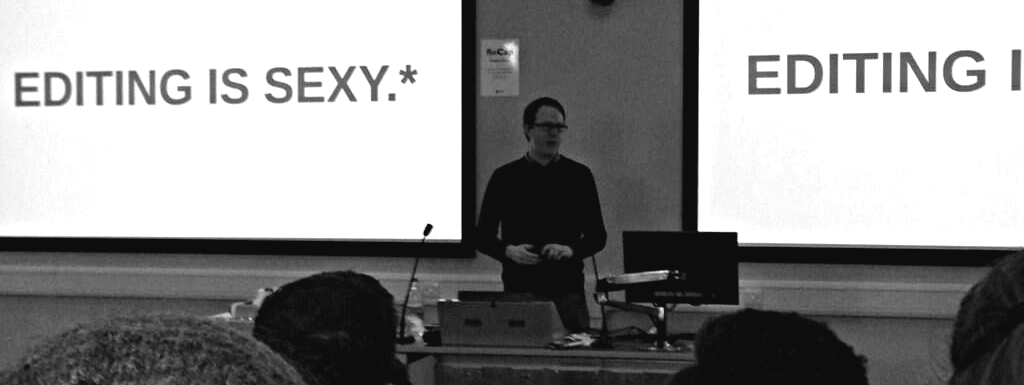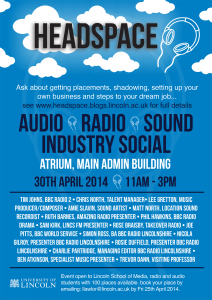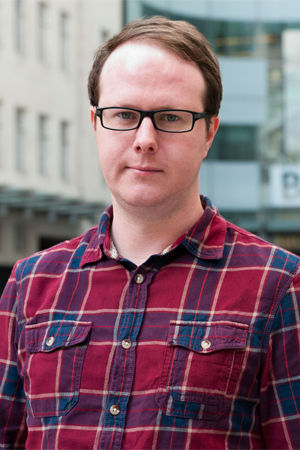At this year’s Student Radio Conference I gave a talk titled ‘Editing is Sexy’. The first thing I said was perhaps more accurate:
Instead of ‘Editing is sexy’ this talk should really be called this: ‘Getting better at audio editing will give you better career prospects in radio’
I was talking to people in student radio, but I think it’s good advice for anyone working in radio. Below is a summary of my thinking. Basically: don’t neglect the art of editing audio.
A cheesy metaphor
If you work as a blacksmith you need to be able to use a hammer. Sure – if you’re starting your own blacksmith business these days you might need to have good people skills, management skills, marketing and social media skills. You might need to employ other people and be an all-round good entrepreneur and businessperson. You might want to run big blacksmith events and even stream them live online. But fundamentally, if your profession is blacksmithery, you need to be able to use a hammer.
A blacksmith works with metal and uses a hammer to shape it.
A radio employee works with audio and uses audio editing to shape it.
Cheesy. But true. And cheesy metaphors taste the best.
THE BIG SECRET
This really is top secret. Don’t tell anyone.
Are you ready for this?
A LOT of people who work in radio…perhaps even MOST people who work in radio…AREN’T that good at editing audio.
That’s the secret. The emphasis is important there.
And once you know that – you know that getting better at editing audio is an easy way to get ahead.
What do I mean by ‘editing’ here?
I’m mainly talking about the ability to edit audio. Do I mean video as well? Yes – I probably do, and the basic nuts and bolts of editing audio or video aren’t that dissimilar.
And getting better at ‘editing’ doesn’t mean becoming an editing ‘expert’. All I’m talking about here is giving audio editing the basic attention it deserves.
Here’s what I said at the Student Radio Conference:
All I’m trying to sell you is the idea that getting better at editing should be something you think about. If you do that, and the person sitting next to you doesn’t, you’re giving yourself an advantage over them that you didn’t have before.
Some of you will be complete beginners. It’s fine to practice editing just speech with no effects or music. You don’t need fancy software – get used to using Audacity – it’s free – it’s fine.
What I’m talking about here is just doing something, anything, to get better at editing. It might be running a podcast. Editing your station’s SRA award entries. Trying to make a few jingles for the features on your show. Just anything that gets you editing.
Me me me
My argument is, unsurprisingly, partly based on my own experience. I have no doubt that at every stage of my career thus far being slightly more proficient at editing than the person sitting next to me has helped me out.
Again – I stress that I’m not talking about really advanced editing techniques.
At the moment I get to create reports and packages for the largest current affairs programme in Europe. I have creative freedom and can only do it because I can edit audio quickly; the turnaround time isn’t long. I think this is great. Thanks, editing.
Thing I’ve made recently are over here. Below is one recent example where I was proud to bring together journalism and editing to deliver FACTS and SCIENCE to a huge audience. It’s nothing special but the fact I get to do this day in, day out, is.
(At the conference I was also asked about putting together radio packages like the above in a short space of time – the answer to which is in this blog post about making radio packages quickly.)
The radio industry agrees…
People working in radio who I spoke to about my talk wholeheartedly agreed with what I had to say. Whether in music or news, commercial or BBC – editing is just as important. Jacob for example, a brilliant producer at Radio 1, was clear that editing both audio and video are vital skills if you want to work there.
And in news-radio, here are a couple more comments I gathered ahead of the student radio conference. Jeremy Vine says that editing is vital for creating good radio packages and reports:










